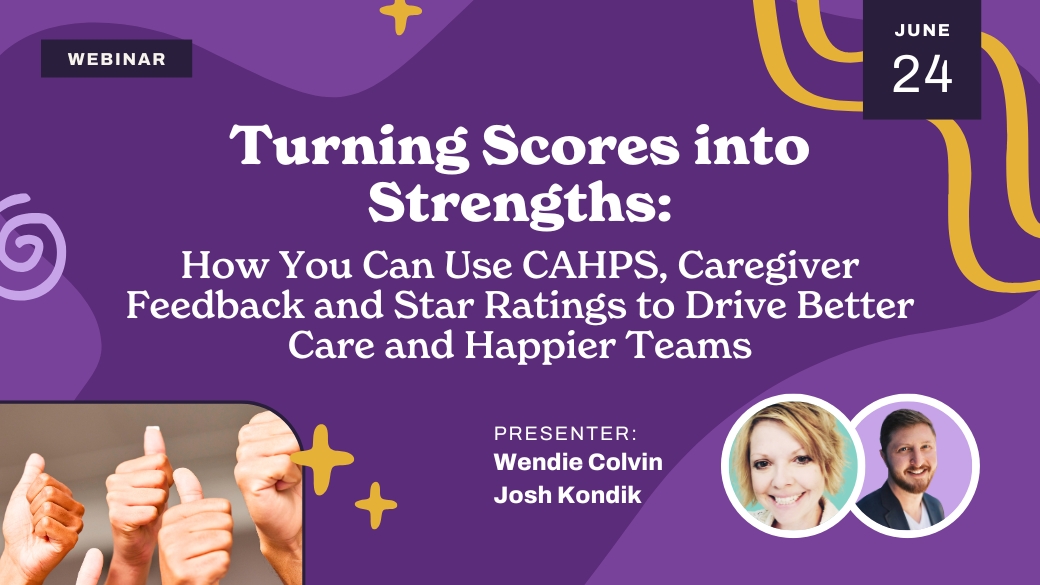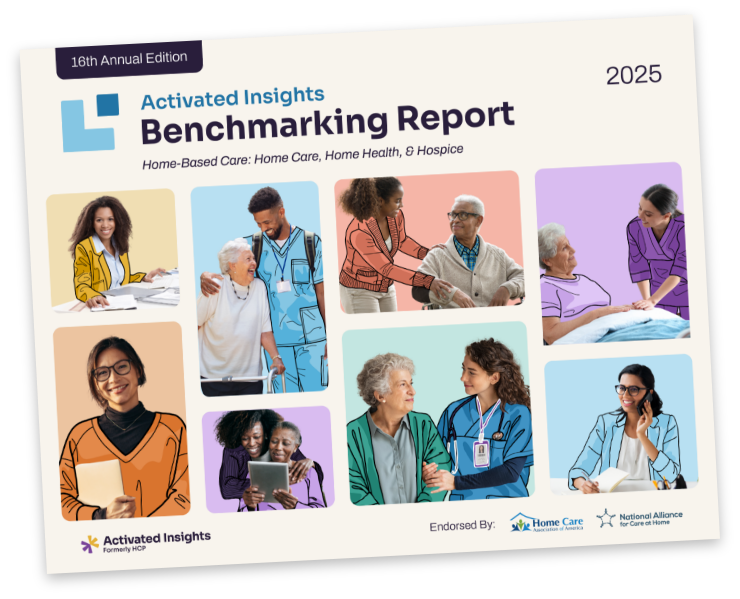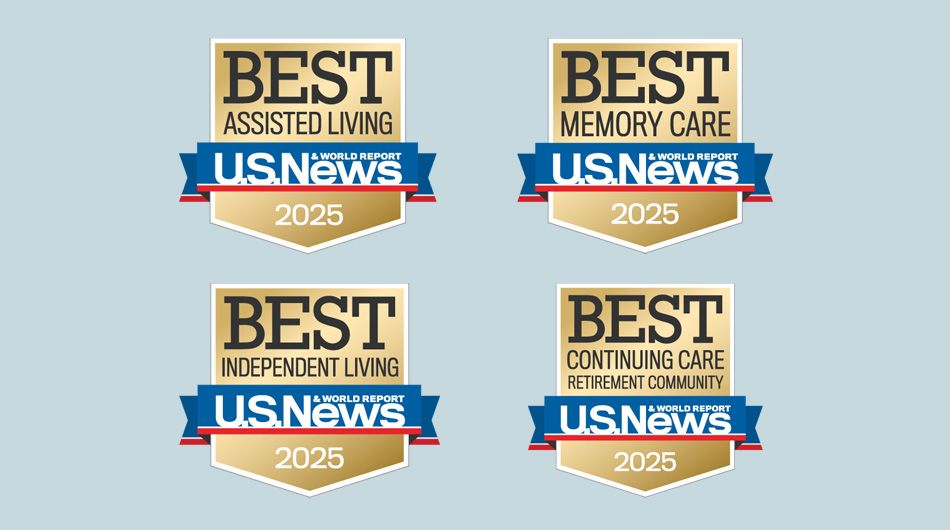April is Minority Health Month, and improving care outcomes should be a year-round priority. Activated Insights is always focused on helping post-acute care providers create pathways to equal care for those experiencing disproportionate hardships. In this article, we’ll reveal how you can use person-centered care to do just that.
The roots of this vital awareness month date back to 1915 when American author and educator Booker T. Washington established a national week focused on improving African Americans’ health. Today, it has expanded to promote widespread education on health problems that face all minorities and other populations experiencing health disparities. The ultimate goal is to encourage organizations to create and maintain programs and activities that promote excellent healthcare outcomes for minorities and others facing healthcare inequality.
Inequities and Disease Prevalence Among Minorities
For many years, experts have studied the far-reaching effects of health inequities and disease prevalence in Americans. Research has shown, time and time again, that those who belong to racial and ethnic minority populations are faced with higher rates of poor health outcomes and increased levels of disease when compared to their White peers (NIH, 2024).
According to the Centers for Disease Control (CDC), a possible contributing factor is that African Americans of a younger age are being faced with diseases that commonly affect older people in the White population. Social factors like unemployment, poverty, inability to afford to own a home, and inability to afford quality healthcare also affect young racial minorities at a higher rate.
The laundry list of disproportionate diseases afflicting non-white Americans includes diabetes mellitus, high blood pressure, obesity, asthma, and cardiovascular (heart) disease. Another contributing factor of the health disparities is Black women have long faced higher rates of birth complications and related mortality.
Most recently, the COVID-19 pandemic shed new light on the devastating impact health inequity has on the minority population. COVID-19-related hospitalizations and deaths in the United States are higher among people from Black/African American, Hispanic/Latino, American Indian, and Alaska Native backgrounds than from their White counterparts—a harrowing reality (CDC, Minority Health, 2024).
Is all hope lost?
Of course not! We, as healthcare professionals, can help. To do so, we must first understand (and do our best to accept) where the disconnect originates. Unfortunately, racism in the United States is generational and centuries deep. While the country is working to move in a more inclusive direction, the shadows cast by divisive rules, laws, and outdated influence of social status continue to affect where one lives, works, receives education, and even where children play. We collectively call these a person’s social determinants of health, which have proven to be the key components when predicting the potential for optimal health outcomes in different environments.
Why?
Because the conditions under which a person lives, works, learns and plays are key drivers of whether access to excellent healthcare is available. Unfortunately, in many minority communities, because the conditions are disproportionately poor, these populations are at greater risk of poor health outcomes.
What Can We Do to Improve Minority Care Outcomes?
It’s no secret that tackling centuries-old systemic racism is a mighty feat for one person, but you can certainly do your part to help. This month, we recommend taking it one client at a time. We invite you to implement our six core concepts of person-centered care:
- Effective Listening
- Valuable Conversations
- Shared Decision-Making & Goals
- Respect of Choices
- Successful Care Planning
- Emotional Understanding
Applying Person-Centered Concepts to Improve Care Outcomes for Minorities
Applying the core concepts of person-centered care to make effective changes in minority health will require a bit of a twist. After all, you are working to change multiple generations of health disparity! Take heart. Your efforts will not require a history book or a deep dive into how we, as a society, got here. In most cases, it simply requires you to allow room for a couple of things: an open mind and the client’s voice.
Effective Listening
Prejudice. We all have it. We “pre-judge” almost every situation we encounter. It’s natural and self-protective. But, in healthcare, it can ultimately be detrimental to the client we are working to heal. Follow these tips as you apply your effective listening skills to a client facing a health disparity:
- Resist any urge to accept “things as they are,” and make a concerted effort to truly hear the client’s voice, including any concerns, questions, or expressed needs.
- Listen for unique challenges that other clients may not be facing and take notes to bring those challenges to the attention of your supervisor. A consultation with a social worker or referral to other resources in the community may be needed to overcome the challenge.
Examples of “unique challenges” may include your home health client expressing that they do not have easy, reliable access to have follow-up visits for their high blood pressure in person. Or, you might discover that the nearest clinic with prescribing authority is across town with no city-bus access.
Valuable Conversations
Healthcare professionals are trained to get straight to the point of signs and symptoms and play their part in healing what ails a client. That’s a great thing! But did you know there is value in listening to the client’s whole story?
Allow the client to vent if you will. Indeed, let them vent. Allow the exchange of information to occur. The knowledge you gain outside of signs and symptoms will allow you to impart education the client may not have otherwise received—making a direct and meaningful impact on their quality of life and positive healthcare outcome.
Continue to learn as much as you can about the resources available to clients, especially those affected by health inequity, and offer them as needs arise.
Shared Decision-Making & Goals
You may know what works in a typical situation when implementing your care plans, especially to mitigate a particular disease. However, those facing healthcare inequities have unique challenges that require unique decisions and goals. Remember, one of the best things that can be done to impact health inequities is to give a strong voice to those whose voices are historically dampened.
Allow your client to share in the decision-making process regarding their care. Listen to any unique challenges that are expressed and take them seriously. And here’s a big one: ensure your client has all the information needed to make a sound decision and effective goal!
Respect of Choices
National Minority Health Month is not limited to the promotion of good health for racial and ethnic minorities; it is also an awareness month for others affected by health inequities because their population faces judgment or subpar care.
For some, healthcare is a choice. For example, a transgender person may receive subpar care if their healthcare provider disagrees with their choice to, undergo reassignment surgery,. Some may even go so far as to dismiss them from their practice.
Healthcare professionals must remember the commitment to practice servant leadership by respecting clients’ choices. Create an environment where the person feels safe voicing concerns and preferences without fear of judgment or dismissal.
Successful Care Planning
The care plan is where you can shine in implementing a strategy that directly impacts health inequities. No single person “owns” the care plan, which provides a unique opportunity to educate other interdisciplinary teams on the client’s challenges of inequity.
Here’s an example of a scenario in which successful care planning could come into play:
Mr. Martinez, an older Latino-American man who suffers from congestive heart failure lives in an underdeveloped community. He is having difficulty staying compliant with his prescribed cholesterol and blood pressure medications because his nearest pharmacy is 25 miles away.
Flexibility and compromise between team members can ensure that Mr. Martinez is given equal opportunity to receive the same care as someone suffering from the same disease but isn’t facing all of the other challenges.
Emotional Understanding
We can begin to understand the experiences of others if we make a pointed effort to learn more about them and the unique challenges they may face. Even if you know nothing about the lived experiences of your clients, checking in frequently and asking some simple, sincere questions can go a long way:
“How are you feeling?”
“How do you feel you care is going?
“Is there anything I can do to make you more comfortable?”
Genuine inquiries like these create an environment of healing that goes above and beyond the challenges faced while seeking excellent health care.
You don’t have to share experiences with your clients to show them you care. Listening intently to your client and picking up on triggering emotional cues can help you steer their care (and even the care plan!) in a direction that shows them you are listening, and you care.
Take Up Arms!
Taking up arms in the battle against health inequities during National Minority Health Month may feel daunting. But remember, it can start with you.
Now that you know a little more about how and why the awareness month came about, you can spend a little extra effort this month implementing the six core concepts of person-centered care in your everyday practice.
Need a little more support? Here are some closing ideas:
- Bring the idea up in your next team meeting or share it with your supervisor.
- Help develop a resource library or activities that bring attention and awareness to health promotion and prevention in minority populations.
- Give clients and residents a voice by capturing some quotes regarding their challenges when trying to access healthcare and what they wish was different.
Remember, the greatest gift you can give during National Minority Health Month is the gift of a voice to those whose voices are otherwise dampened in our society today. This will help create future opportunities to turn troubling healthcare outcomes into positive outcomes for all.
Additional Resources:
Related Posts






